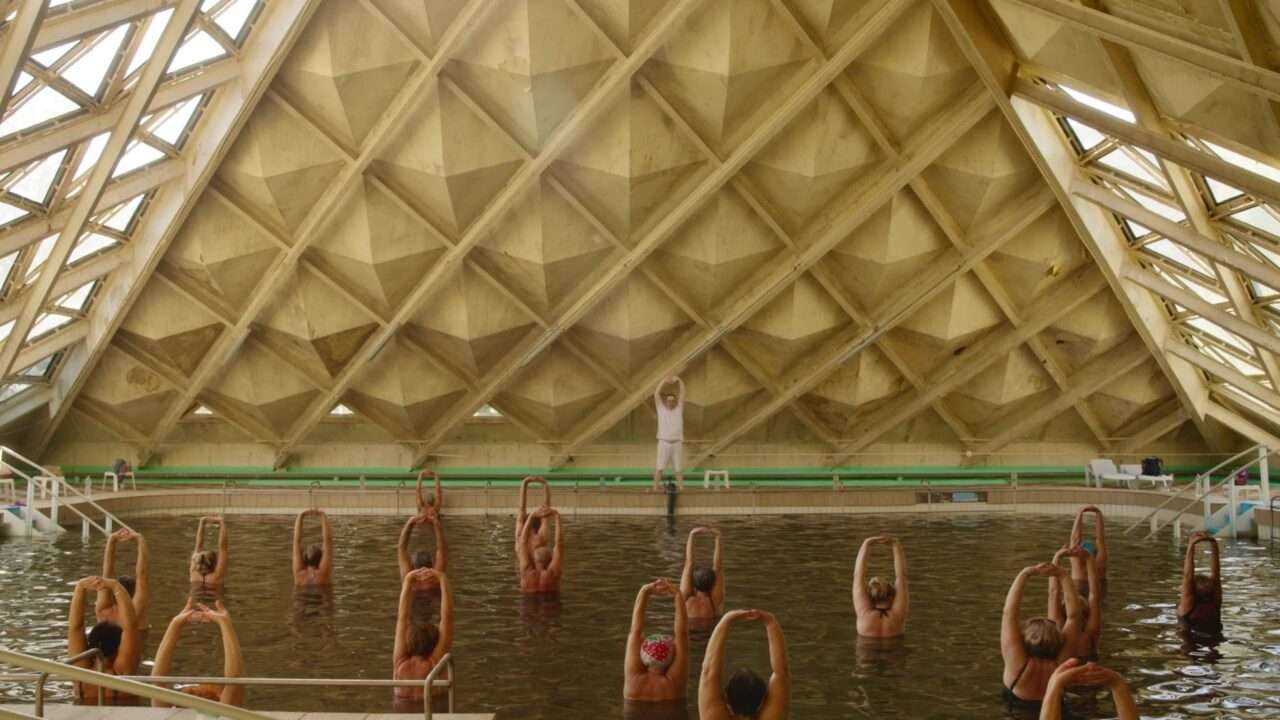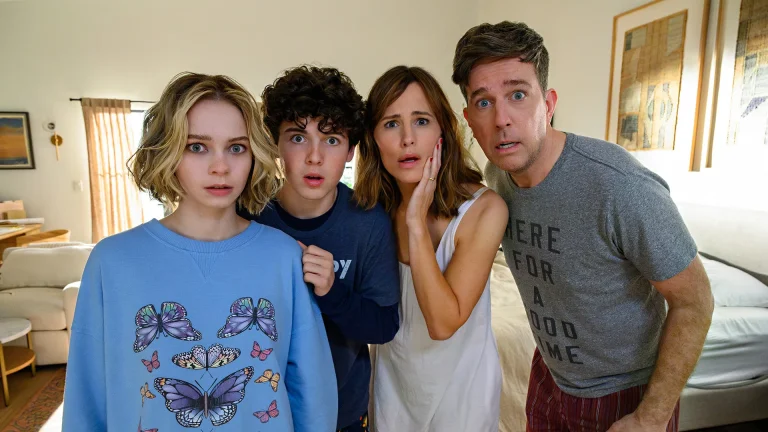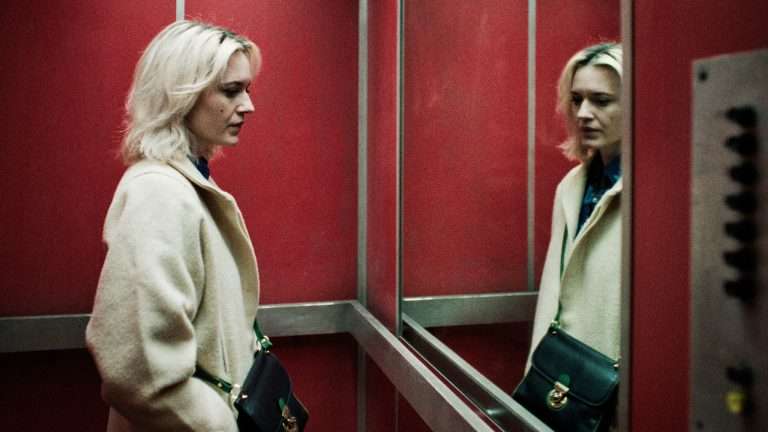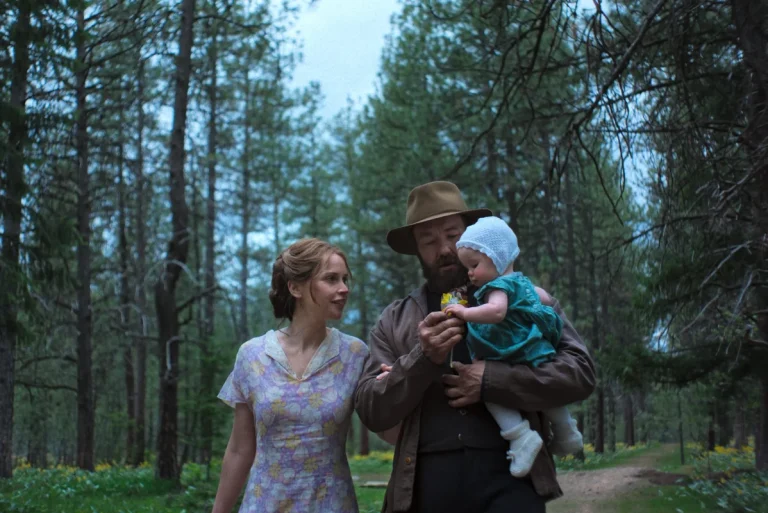A quest for happiness and anchorage belies the visitors checking in at the massive ex-Soviet Kuyalnk wellness resort in Ukraine’s Odesa. While the spectacular brutalist domes will take your breath away, Gar O’Rourke’s “Sanatorium” foregrounds snippets of stories shared by both the resort’s staff and guests. You’re gently beckoned to witness them over the span of a summer.
O’Rourke’s gaze shimmers with tenderness, affection, and utter, magnanimous regard for the motley bunch of characters. Each has their own eccentricities, loneliness, private grief and ache, all coming to find shelter in the resort. As someone remarks late in the film, there are times when we open up to a bunch of strangers things we have long wrestled with and baulked at confiding in those close to us. “Sanatorium” lets you inhabit intimate spaces of humanity, seeped in a depth of trust. Here are people with all stripes of problems to be dealt with, situations to get over, walking in.
A girl hopes to have some sort of remedy for infertility, and an older woman seeks to heal from fresh bereavement after losing her husband on the frontlines. The range is sprawling, from stress-induced sickness to war-roused trauma. Then, there’s a particularly memorable mother-son duo. She’s displeased and restless about her forty-year-old son remaining unmarried, he asks how he can possibly think of marrying when he doesn’t even have a stable income. The economy is sunk, jobs whittled down. Survival itself is a dear act, openly vulnerable. The mother and son clash and gripe but ultimately come back to each other, inextricably knit together.
O’Rourke weaves moments of finding kindred connection, a sense of community—conversations of empathy and grace—with rich attentiveness. Visitors tumble in, pursuing medical cures for varied illnesses. The resort has these distinctive, uncanny mud and brine baths, which people believe hold a restorative essence. Its enigma wields the allure that draws people in. Staff note that many guests’ initial impression is how shabby and decrepit the resort is; nevertheless, most end up staying longer than they’d signed up for.
O’Rourke establishes the rhythms of the place with care and detail, shooting in and out of snatches of life as it plays out for both guests and staff. War hovers at the edges, bristling right outside the resort. There’s an acute awareness of it among anyone who steps into this silo of a place. Air raid alarms that sporadically blare serve as interrupting, disconcerting reminders. These accentuate the singing, dancing, laughing, and restfulness that spreads within its boundaries. One of the older guests states, “It’s better not to know”, when she hears people now have apps that can indicate where missiles are headed.

Denys Melnyk’s camera leans into the capaciousness of spaces, sparks of shared joys and sadness. At times, when the camera slides down corridors, the effect is almost eerie, hypnotic, and transcending. The resort is perennially struggling with maintenance costs, the ever-immediate precarity of debts, and stakes accruing from the dwindling number of guests. Closure always seems to be on the anvil, only fleetingly deferred. Nevertheless, the resort carries on putting up a valiant, unshakable front, regardless of drying up reservations. O’Rourke allows you to peek into the assortment of treatments, but the centre remains a larger, spiritual sense of repose the resort and its staff achieve in instilling, draping it all over anyone who enters the premises.
You can’t help but be wholly taken in by the ethos, the atmosphere of the place. O’Rourke splendidly succeeds in conveying a fascination with the wellness resort—a microcosm of the insuperable Ukrainian spirit—that goes into the depths of adulation, a reverence that deserves notice. There’s incredible optimism, a revitalising, life-affirming quality to “Sanatorium”- an absolute, unbending tenacity of spirit—which the world needs. It’s a refusal to be crushed by circumstance, no matter how unrelenting or pitiless.
The folks you encounter in the film have plenty to quail about and languish in, but they surge forth, ardent and defiant. The suppleness with which they embrace life, its vicissitudes, and the extreme times their homeland is mired in is their animating force. But “Sanatorium” doesn’t flinch from putting the price of war in clear, bracing terms. An ex-soldier recovering at the resort asserts how even if they “psychically recover, they can’t be resurrected mentally”. He’s been here so long, he’s no longer depressed, he says. All he is waiting for is to go home.
This is an arresting, buoyant work, moving with fluid assuredness in John Murphy’s editing, elegantly composed and beautifully observed in every pore of its being. “Sanatorium” is a radiant jewel, scooping hope out of the wellspring of despair. It’s indelibly, quietly moving, a wondrous refuge of a film.



![Decoupled [2021] Netflix Review: A Shallow Satire on Urban Marriage Gone Irretrievably Wrong](https://79468c92.delivery.rocketcdn.me/wp-content/uploads/2021/12/Decoupled-2021-Netflix-768x427.jpg)

![The Curse of La Llorona [2019] Review: Predictable. Forgettable. Mediocre.](https://79468c92.delivery.rocketcdn.me/wp-content/uploads/2019/07/la-llorona-screenshot-1-768x384.jpeg)


